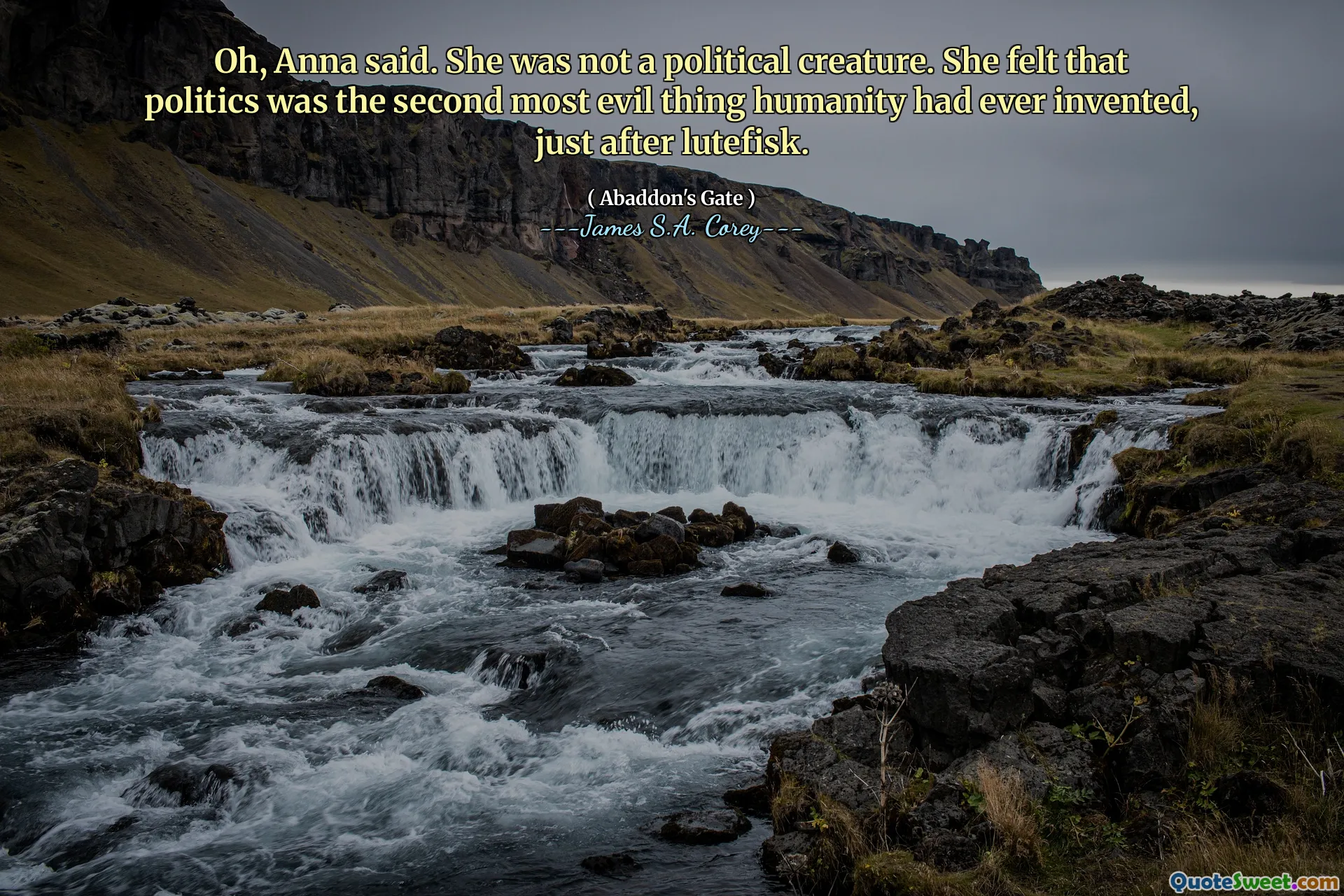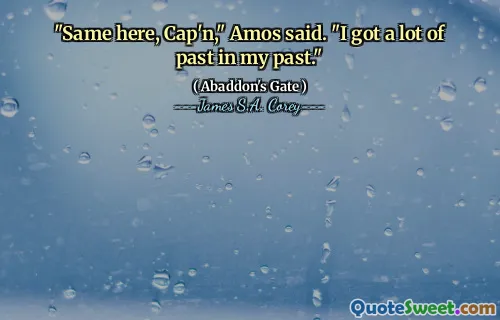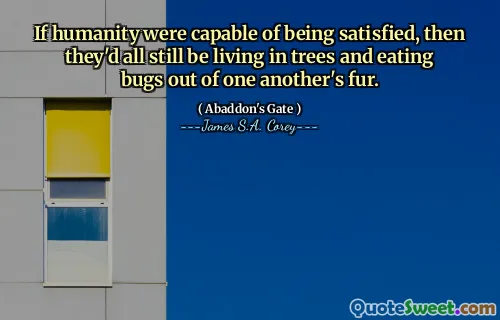
Oh, Anna said. She was not a political creature. She felt that politics was the second most evil thing humanity had ever invented, just after lutefisk.
The quote poignantly captures the skeptism and disdain some individuals feel towards politics, viewing it as a corrupting or destructive force in human society. The comparison between politics and lutefisk, a traditional Scandinavian dish known for its strong smell and acquired taste, adds a humorous yet pointed layer to the statement. It suggests that politics, much like lutefisk, might be an acquired taste — unpleasant or revolting to some — and perhaps unnecessary or inherently problematic.
This sentiment resonates with a broader societal critique: the perception that political systems often serve interests contrary to the common good, breeding cynicism and apathy among the populace. It raises questions about the moral integrity of political institutions and their effectiveness in fostering genuine communal progress. Anna's perspective echoes the frustration that many feel about politics being contaminated by corruption, power struggles, and self-interest, making it an undesired but seemingly inevitable part of human existence.
At the same time, such a portrayal invites reflection on the importance of civic engagement and the potential for positive change when individuals participate actively. While widely viewed as necessary, politics too often become associated with compromise and disillusionment. The humorous yet sharp analogy used in the quote serves to highlight the dichotomy between the idealistic view of human cooperation and the often disappointing reality of political processes. It also underscores the human tendency to dismiss or distance oneself from complex societal issues, preferring to critique or disdain them rather than engage actively.
Overall, the quote encapsulates a profound disillusionment with the political landscape, using humor to underscore how deeply ingrained and pervasive this sentiment can be in individuals, and how it might reflect underlying frustrations with societal structures and human nature.









